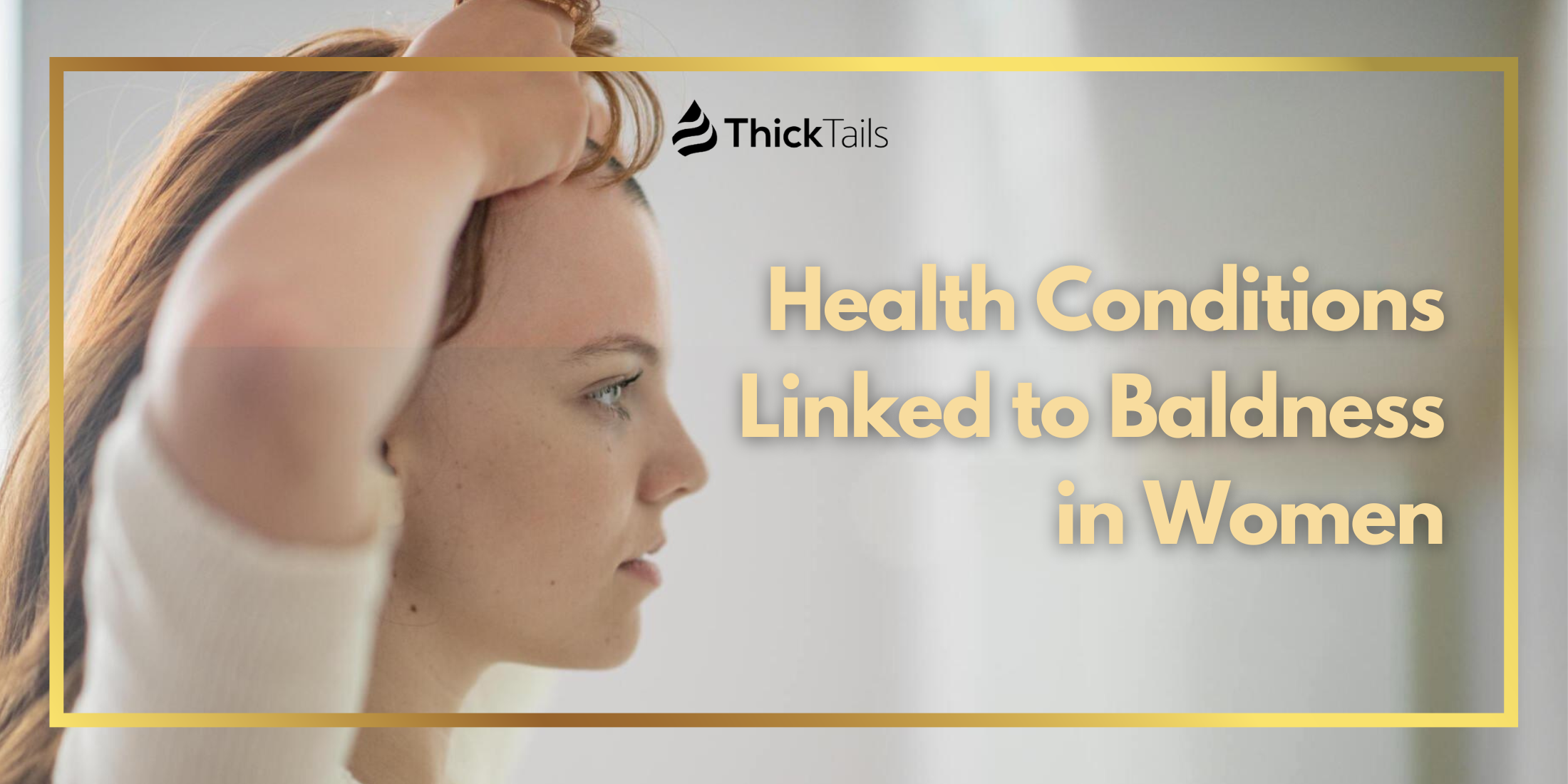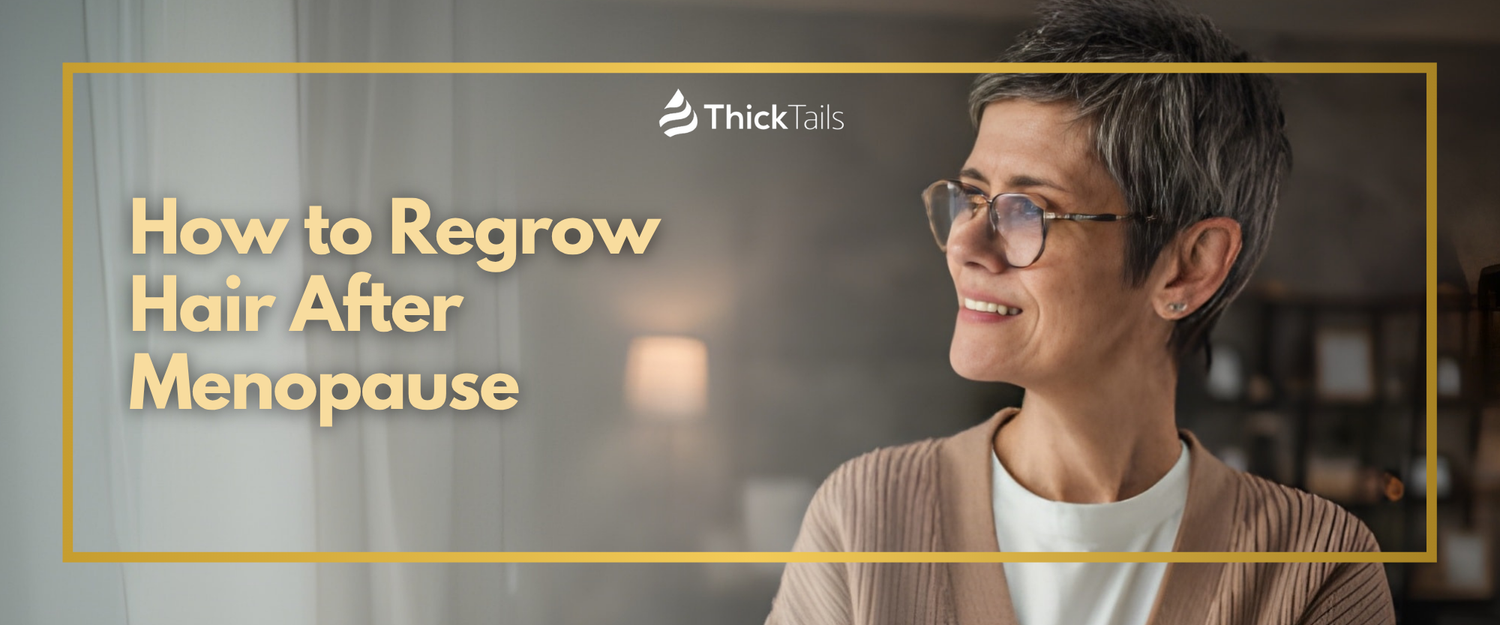The luscious locks adorning a woman's head are often a source of pride and identity, making the prospect of baldness a particularly distressing one. While many might associate baldness with men, the phenomenon is not exclusive to one gender. Women, too, experience hair thinning and baldness, and it can be a profound sign of underlying health issues. This post is geared towards women who may be grappling with hair loss and aims to shed light on the health conditions that could be the cause.
Understanding Health Conditions Linked to Baldness in Women

For many women, scalp care is an integral part of their beauty and health regimen, yet baldness and hair loss remain under-discussed aspects of women's health. Understanding the various conditions that can lead to hair loss is crucial for both prevention and treatment. Conditions such as alopecia areata, hormonal imbalances, thyroid disorders, and scalp infections can significantly impact a woman's hair health, leading to thinning and bald spots. Early detection and appropriate treatment of these underlying health issues are vital for maintaining not only the health of one's hair but also one's overall well-being.
Common Health Conditions Associated with Premature Baldness
Baldness in women, also known as female pattern hair loss (FPHL), has been more commonly linked to hormonal imbalances and underlying health issues as opposed to the predominantly genetic factors that influence male baldness. Some of the most prevalent health conditions include:
- Androgenetic Alopecia: Caused by a combination of hormonal and genetic factors, this type of hair loss affects women primarily during menopause or prior to it. It's characterized by a reduction in hair density over the crown and frontal scalp.
- Thyroid Disorders: Both hypothyroidism and hyperthyroidism can lead to hair loss. The disruption of thyroid hormones can lead to a diffuse thinning of hair across the scalp.
- Polycystic Ovary Syndrome (PCOS): PCOS is known to cause higher levels of androgens, or 'male' hormones, which can halt the growth of hair follicles and lead to hair loss.
Recognizing Symptoms: How Health Conditions Affect Hair Health
When one of these conditions is present, it often manifests in distinct ways that affect hair health. Symptoms can include sudden or gradual thinning, a reduction in hair volume, and a noticeable widening of the part. It's important to pay attention to these signs and consult a healthcare professional for proper diagnosis and treatment options.
Impact on Women's Hair: The Science Behind Baldness in Women
The reasons behind the correlation between these health conditions and baldness can be complex, involving disturbances in hormone levels, increased sensitivity of hair follicles to androgens, nutritional deficiencies, and more. Through a series of physiological reactions, these conditions can shorten the hair growth phase, leading to the premature shedding of hair.
Managing Health Conditions to Prevent Baldness in Women
Managing baldness and hair loss in women involves not only treatments specifically aimed at hair regrowth but also a comprehensive approach to scalp care. It is essential for women to understand that maintaining a healthy scalp is just as vital as treating the visible symptoms of hair loss. Integrating nutritious diets, gentle hair care routines, and regular check-ups can significantly mitigate the effects of conditions leading to baldness. Addressing underlying health issues promptly, with a focus on hormonal balances and nutritional deficiencies, can make a noticeable difference in hair health. Ultimately, women grappling with hair loss should remember that their scalp care regimen plays a crucial role in both prevention and treatment of baldness.
Treatment and Management Strategies for Underlying Health Issues
Correcting the underlying health condition is often the most effective strategy in preventing further hair loss. This may involve:
- Medications for Thyroid Disorders: Once diagnosed, a doctor may prescribe medication to bring the thyroid hormone levels back into balance, which can in turn slow or halt hair loss.
- Hormonal Treatments for PCOS: Managing PCOS often involves medications to regulate menstrual cycles, treat acne, or reduce hair growth. These can also have a positive impact on hair loss.
- Androgen Blockers: In the case of Androgenetic Alopecia, medications that block the effects of androgens can be used to prevent further hair loss.
Lifestyle Changes to Promote Hair Health and Reduce Baldness Risk
Lifestyle modifications can also play a crucial role in managing hair loss:
- Stress Management: Implementing stress-reducing techniques such as mindfulness, yoga, or regular exercise can help minimize the effects of stress-related hair loss.
- Healthy Diet and Exercise: Good nutrition and regular physical activity support overall health, which in turn encourages healthy hair growth.
- Supportive Hair Care Routines: Using gentle hair care practices and products that are suitable for thinning hair can help prevent further damage to weakened hair.
Dietary Recommendations for Healthy Hair Growth in Women
Food and nutrition can significantly influence the health of your hair. Incorporating a variety of nutrients, including omega-3 fatty acids, protein, iron, and vitamins, is essential. Foods such as salmon, eggs, spinach, and nuts can be beneficial for maintaining and promoting healthy hair growth. For those struggling to get the necessary nutrients from their diet, supplements like biotin, vitamin D, and iron may offer additional support.
Preventive Measures and Hair Care Tips for Women to Maintain Healthy Hair

For women facing hair loss and baldness, selecting the right shampoo and conditioner is crucial in enhancing scalp care and mitigating further damage. Products specifically formulated for thinning hair can help in nurturing the scalp and strands, providing a healthy foundation for hair growth. Alongside topical treatments, integrating hair supplements rich in essential nutrients can bolster hair health from the inside out. Understanding the synergy between a nutritious diet, suitable hair supplements, and a gentle, nurturing hair care regime is key in combatting hair loss and promoting the overall health of both hair and scalp.
Scalp Care: Importance and Techniques for a Healthy Scalp
A healthy scalp is the foundation for vibrant hair growth. Regular scalp massages can improve blood circulation and help clear away dead skin cells, promoting a favorable environment for hair follicles. For women with sensitive scalps, gentle exfoliation with natural bristle brushes or specialized exfoliating products can offer comfort and relief.
Hair Care Products: Choosing the Right Products for Your Hair Type
Selecting the right hair care products is crucial, especially when dealing with thinning hair. Look for shampoos and conditioners that are sulfate-free and formulated to add volume and strength to the hair. Strengthening ingredients like keratin, biotin, and panthenol can be particularly beneficial.
Additionally, for women navigating the challenges of hair loss and baldness, integrating hair supplements that target scalp care can enhance the efficacy of their shampoo and conditioner routine. It's essential to choose products and supplements that align with individual scalp and hair needs, ensuring a concerted effort in fighting hair loss and promoting healthier hair growth.
Styling Tips: Hair Care Practices to Avoid Damage and Breakage
Avoiding styling techniques that cause stress on the hair follicles, such as tight ponytails or weaves, is important for preserving the existing hair. Opt for protective styles and hair accessories that don't put undue pressure on the scalp. Additionally, minimizing the use of heat-styling tools and using a heat protectant when they are necessary can help prevent damage.
Baldness in women is a multifaceted issue that often has an underlying health component. By understanding the potential causes and how they manifest, women can take proactive steps to manage and, in many cases, improve their hair health. From adopting healthier lifestyle practices to investing in the right products and treatments, it's possible to not only combat hair loss but also maintain a full, healthy head of hair. Remember to consult your healthcare provider before starting any new treatments or health regimens.







